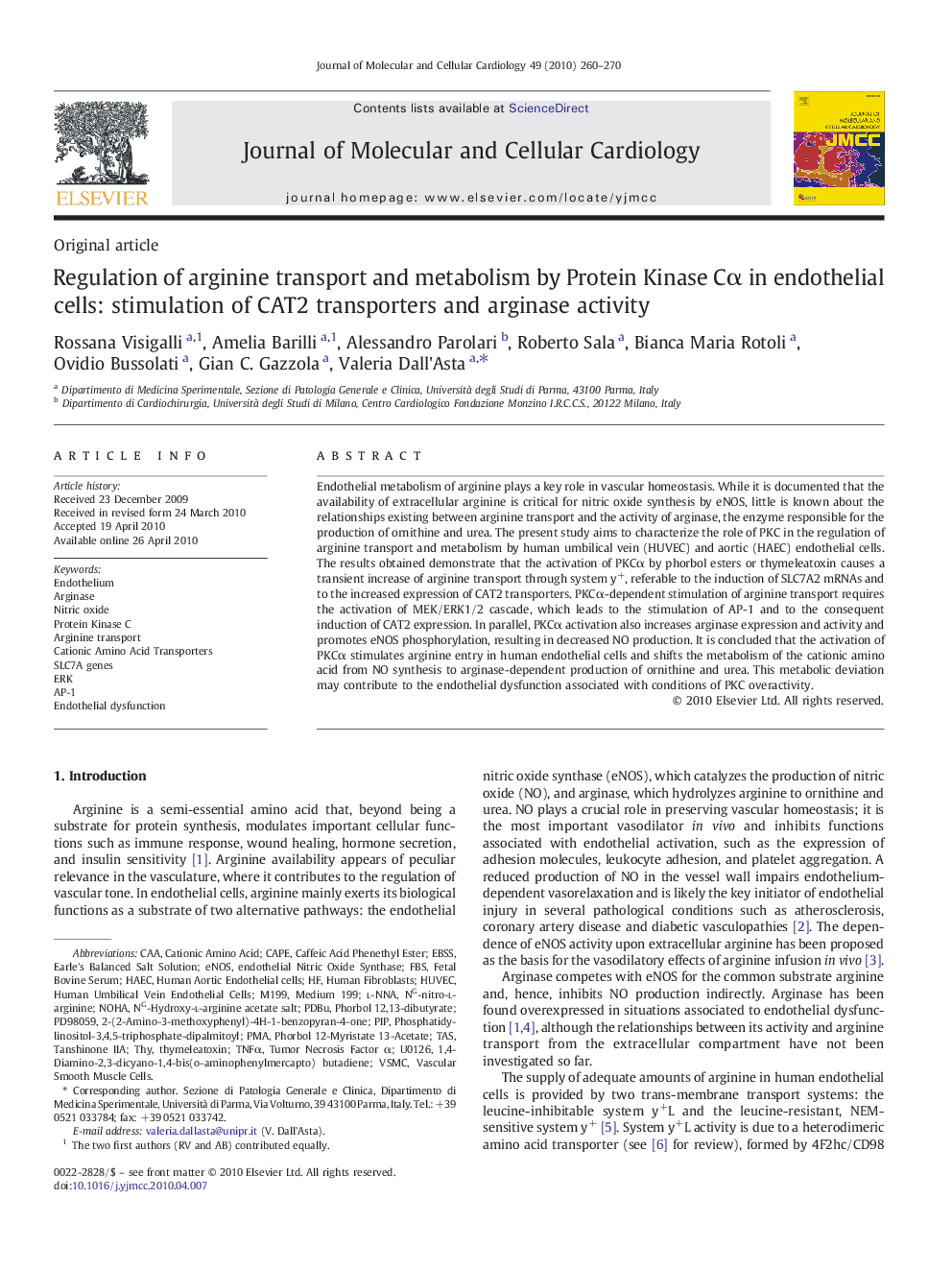| Article ID | Journal | Published Year | Pages | File Type |
|---|---|---|---|---|
| 2191068 | Journal of Molecular and Cellular Cardiology | 2010 | 11 Pages |
Endothelial metabolism of arginine plays a key role in vascular homeostasis. While it is documented that the availability of extracellular arginine is critical for nitric oxide synthesis by eNOS, little is known about the relationships existing between arginine transport and the activity of arginase, the enzyme responsible for the production of ornithine and urea. The present study aims to characterize the role of PKC in the regulation of arginine transport and metabolism by human umbilical vein (HUVEC) and aortic (HAEC) endothelial cells. The results obtained demonstrate that the activation of PKCα by phorbol esters or thymeleatoxin causes a transient increase of arginine transport through system y+, referable to the induction of SLC7A2 mRNAs and to the increased expression of CAT2 transporters. PKCα-dependent stimulation of arginine transport requires the activation of MEK/ERK1/2 cascade, which leads to the stimulation of AP-1 and to the consequent induction of CAT2 expression. In parallel, PKCα activation also increases arginase expression and activity and promotes eNOS phosphorylation, resulting in decreased NO production. It is concluded that the activation of PKCα stimulates arginine entry in human endothelial cells and shifts the metabolism of the cationic amino acid from NO synthesis to arginase-dependent production of ornithine and urea. This metabolic deviation may contribute to the endothelial dysfunction associated with conditions of PKC overactivity.
